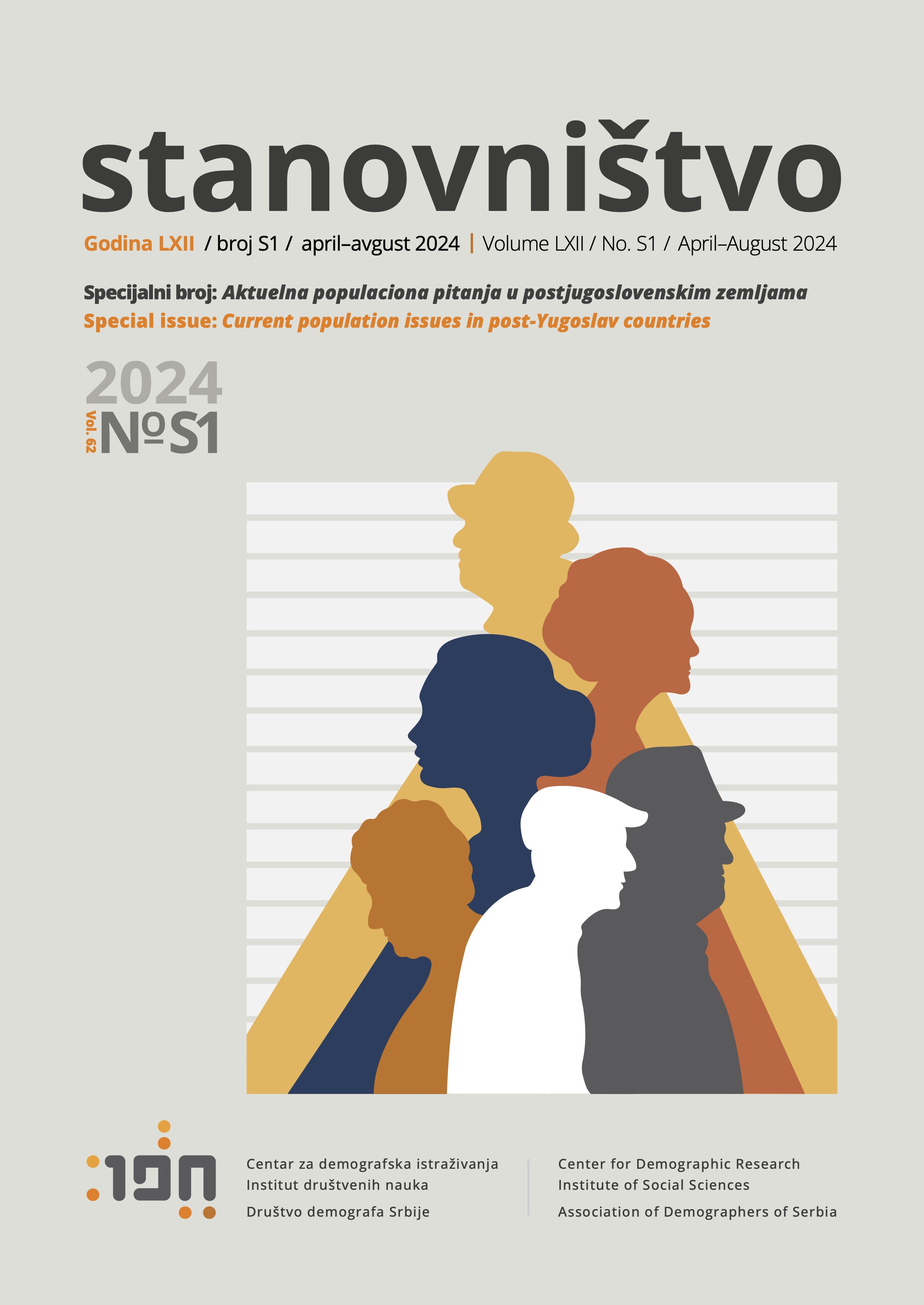Depopulacija i duboko starenje: prostor bivše Jugoslavije i Zapadnog Balkana između druge demografske tranzicije i emigracije
Depopulation and deep aging: the former Yugoslav and Western Balkans space between the second demographic transition and emigration
Author(s): Damir JosipovičSubject(s): Human Geography, Regional Geography, Demography and human biology
Published by: Институт друштвених наука
Keywords: population ageing; emigration; low fertility; depopulation; second demographic transition
Summary/Abstract: The article introduces the tentative concept of deep aging –a label used for a situation when the overall ageing effects of the second demographic transition, due to fertility below replacement level, are topped by the excessive emigration of the fertile contingent (additional loss of active population). Deep ageing thus accelerates population decline. But the loss of fertile contingent may affect the total fertility rates and its apparent rise (TFR). Here, the tempo effect of fertility plays the decisive role. The article first assesses the demographic change in the European macroregions in the period after the fall of the Iron Curtain (1990–2020). It then analyses the changes in the area of former Yugoslavia to assess the extent of population change in the last intercensal period, 2011–2022. Building on the previous research of population loss and migration flows after the break-up of Yugoslavia, the overall population change in the region is being assessed. It is also shown that tempo distortion of fertility rates considerably affects the realistic level of fertility and that approximate completed fertility rates fell less dramatically. Since the migration data are less reliable, the analysis of intercensal change was applied to assess the migration losses across the ex-Yugoslav space. To assess theextent of deep ageing, the intercensal projection of fertilecontingent was introduced. The stage of deep ageing isthe most pronounced in Croatia and Serbia, especially atthe younger fertile group, while the overall loss of fertilepopulation is profound and will certainly affect the furtherfuture decrease in population. Similarly difficult demographicsituation is in other post-Yugoslav countries, whereonly Slovenia has not yet slid into the stage of deep ageing.
Journal: Stanovništvo
- Issue Year: 62/2024
- Issue No: S1
- Page Range: 57-84
- Page Count: 28
- Language: English

